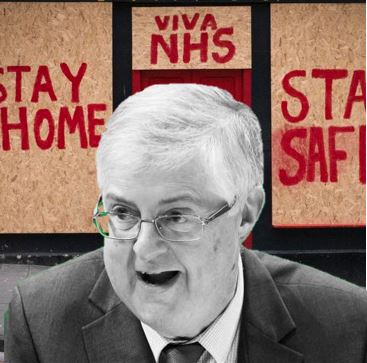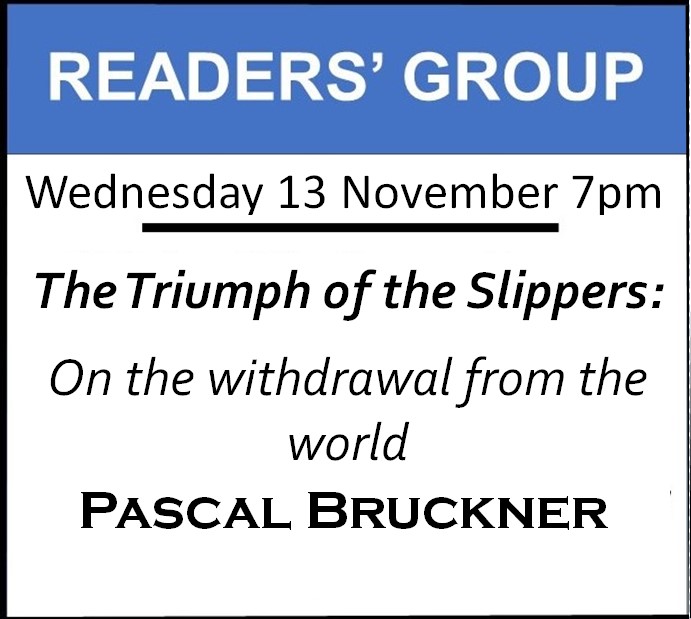Coronafeirws
 Cardiff University explains that its Social Policy unit at the School of Social Sciences explores “how we decide what human needs are, whose responsibility it is to meet human needs, and what we mean by ‘social justice’.” Its most notable emeritus is the retro-Dickensian and Latin scholar, Mark Drakeford, currently the First Minister for Wales, who seems to have forgotten anything positive on the syllabus.
Cardiff University explains that its Social Policy unit at the School of Social Sciences explores “how we decide what human needs are, whose responsibility it is to meet human needs, and what we mean by ‘social justice’.” Its most notable emeritus is the retro-Dickensian and Latin scholar, Mark Drakeford, currently the First Minister for Wales, who seems to have forgotten anything positive on the syllabus.
Drakeford is a man who has been relatively unknown even in Wales throughout most of his career. Characterised as a “reluctant leader” who didn’t take part in TV debates during the 2019 general election, one journalist claimed that speaking to him was “reminiscent of the sort of university tutorial Drakeford might have given as an academic.” Searching for a flicker of charisma the BBC noted that he was the only member of the Welsh assembly to milk a cow. Yet, over the course of the pandemic he has become a leading voice of draconian lockdowns, causing The New Statesman to add, with seemingly faint praise, that “far more people now have a view about him”.
Drakeford heads the Welsh Labour Group at The Senedd (Welsh Parliament) in Cardiff, having started his political career as a special adviser on health and social care in the early 2000s. That was a period of increasing Welsh political autonomy. In 1997, just 50.3% of Wales had voted for the creation of a devolved National Assembly for Wales, laying the ground for Drakeford to climb the greasy pole of regional politics. During his stint as Wales’ de-facto Brexit minister – or rather, as a vociferous anti-Brexit minister – he preferred to ignore the 52.5% of Welsh voters who voted to leave the EU (and the 52% to 48% national result). A Corbyn acolyte, and with his leadership backed by Momentum, Drakeford campaigned furiously to remain within the EU.
Thrust into the limelight as a result of the coronavirus pandemic he is revelling in the attention that Wales is receiving and cannily conducting press briefings several hours before Boris so that he might be seen to be leading the debate. He is often referred to by Richard Taylor of the Abolish the Welsh Assembly Party as “the Emperor of Cardiff Bay” for his overblown sense of authority while presiding over a dire situation in the principality’s health and social services. (NB: The Welsh Assembly was renamed the Welsh Parliament in May 2020).
Since devolution, Wales’ social care has been the responsibility of local government rather than driven by (UK national) NHS structural needs or central government priorities. It is why each of the devolved assemblies have their own chief scientific officers, directorships and organisational bureaucracies. Public Health Wales is one of the 11 organisations which makes up NHS Wales helping to make it the biggest employer in the principality. Its funding regime requires each local authority to juggle priorities as overall council budgets are slashed.
Twenty years ago, while setting out its devolved ambitions, Wales shifted its attention to patients as “potential producers of health gain, rather than as consumers of healthcare.” So instead of prioritising the funding of hospital beds, medical treatment, or palliative care, the Welsh public health industry has concentrated on treating so-called “health behaviours” in order to avoid hospital admissions in the first place. As the Welsh Assembly stated in 2002, instead of relying on hospital treatment, “health information can fulfil a ‘utilitarian’ role, resulting in more appropriate use of finite resources”. As a result, it has placed a lot of time and resources on brow-beating Welsh people about the dangers of smoking, alcohol consumption and obesity initiatives to keep people out of the inadequate healthcare sector in the first place. Inadequacies exemplified by the need to out-source some operations to Liverpool or Alder Hey in England, for example.
Preventive therapeutic strategies are now commonplace across all public health authorities, but that often means that physical care – hospital beds – has been a low priority. This infrastructural void been exposed in the advent of the pandemic but the “behavioural change” mantra continues to be the dominant message even in the face of a global crisis. Save the NHS, Stay in your Shed.
A WHO report from 2012 noted that Wales’ “health inequalities have proved stubbornly resistant to improvement”. Today, there continues to be “a fragile situation” with regard elderly care homes and children’s services in Wales, and the situation is reflected across most of the other social services. Pointing out that Wales is doing better than Scotland is hardly inspiring.
Meanwhile, Drakeford’s media statements from the pandemic podium have provided him with the opportunity to take windbaggery to heights seldom seen since Neil Kinnock’s era. Catchphrases include: “the race is with the virus” and the Kennedy-lite: “We will only get through this if each one of us asks ourselves not ‘what can I do?’, but ‘what should I do?’.
His enthusiasm for lockdowns, firebreaks (rather than circuit-breakers), isolationism, border controls, bridge patrols and other means of shutting down connections with the outside world were unsurprised to find that he did indeed, live in a shed at the bottom of the garden. His hermetically-sealed asceticism casually sanctioned the roping off of inessential items – y’know, like children’s books and clothes – even within “essential” shops. At Christmas, he mooted plans for vaccine ID cards, even after UK government minister Nadhim Zahawi rejected the idea. As an authoritarian embodiment of Labour’s growing contempt for social life and the everyday struggles and lived experiences of ordinary people, Drakeford is an exemplar.
His Puritan restrictions the sale of alcohol resulted in him being barred from more than 100 pubs in Wales. But his popularity rating remains stubbornly healthy (51% during the Christmas lockdown) at almost double that of Boris Johnson. His ratings appear to rely on the misconception that Wales’ social care meltdown is the result of central government policies rather than by its own mismanagement. Drakeford’s enforced temperance measures even meant that the pub ban worked in his favour; reinforcing his public health message, and seeing off his Conservative rival, Paul Davies who was forced to resign after breaching Drakeford’s festive Christmas alcohol restrictions.
Drakeford’s reign has undoubtedly benefited from the disenfranchisement of the populace (he plans to bring in emergency powers to postpone May’s Senedd elections, snatching back the promise that 16 and 17-year-olds would be given the vote), and by relying on the misconception that Wales’ social care meltdown is the result of central government policies rather than by its own mismanagement. His biggest plus however, seems to be that he is not Boris Johnson.
Presiding over some of the worst coronavirus statistics in the UK, a health service in meltdown and with a casual fetish for locking people up, Drakeford’s recent remarks on the roll out of the vaccine programme have been jumped on as an unfortunate gaff, rather than a typically tone-deaf approach to the problem.
While others celebrated the roll-out of the vaccination programme, Drakeford announced that “there would be no point and certainly it would be logistically damaging to try and use all of [the Pfizer vaccine] in the first week and have our vaccinators standing around with nothing to do.” A number of surgeries have been offering the vaccine only on Saturdays for that very reason. His Health Minister, Vaughan Gething told the Senedd that it was his “understanding” that the vaccine roll out had reached “the majority” of Wales’ over 80s population at a time when, in fact, a mere 23.9% had received the vaccination.
This bungling incompetence is what happens when a healthcare system that has made a conscious decision to prioritise therapy, lifestyle choices, personal responsibility and intrusive regulations is confronted with an urgent need for actual medical provision. They have forgotten the business of saving people’s lives and prefer that we simply stay away.
Austin Williams
.






